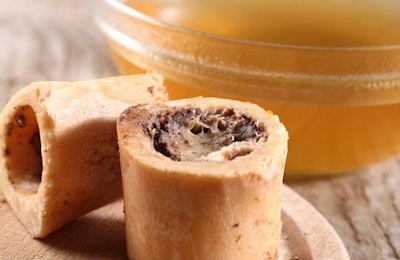
Cargill is promoting its The Chompery brand as butcher-quality premium dog treats, so much so that it is marketing them in the meat aisle at grocery stores across the United States.
The Chompery line includes the following products:
- Beef knee
- Beef marrow
- Beef foreshank
- Beef ribs
- Pork femur
- Beef femur
- Full pig ears
- Bully sticks
- Jerkies
- Windpipes
The Chompery products are produced in the United States from natural ingredients, are easy to digest, and promote healthier teeth and gums, a The Chompery Fact Sheet stated.
Why the meat aisle?
It may seem unusual for a company to have its pet treats marketed in the meat aisle where meats for human consumption are sold, instead of the pet food aisle. But Tom Windish, president of Cargill Protein’s retail channel, said it was a move that made sense.
He said it has less to do with trends of dog owners humanizing their pets, and more to do with “several trends and consumer data points that point us in that direction.”
Windish noted that data has shown that since the COVID-19 pandemic started, 90% of pet owners said they spent the same amount of money on their pets, or even more, than they did in the pre-pandemic days. He also pointed out that 65% of dog treat purchases were unplanned, so seeing them in a nontraditional place would not necessarily lead to a missed sale.
The relationships between Cargill, which is a leading beef and turkey producer in the United States, and the meat departments of major retailers also played a factor.
“That’s an area in the store where we’ve operated for a long time,” said Windish. “We have relationships with retailers at the meat case. The connection to the butcher and bones is a natural connection to us, and more importantly, it’s a natural connection to the consumer.”
A sustainable option
Cargill has been in the pet treat business for about seven or eight years, Windish said, but it wasn’t until the past year that the company rolled out a retail brand.
By producing pet treats from parts such as bones or windpipes that would otherwise may be discarded or sold for a lesser value, it helps Cargill be a more sustainable company.
“Sustainability has always been a core value,” said Windish. “Any time we can do more with less in the value of products, we believe that is the right thing to do. That is part of the thinking here.”
















